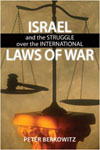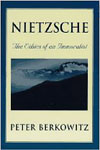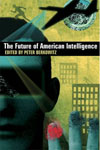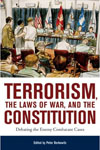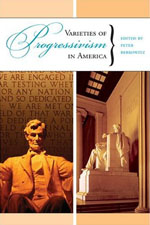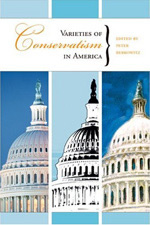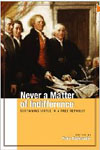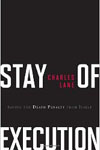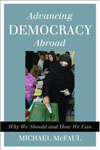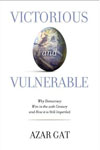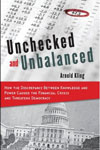The Boston Book Review, Sept. 1995
Friends of Liberalism Should Be Grateful
A review of Passions and Constraint: On the Theory of Liberal Democracy by Stephen Holmes
University of Chicago Press. 350 pp. $29.95.
Over the last twenty years liberalism's critics, and curiously enough, many liberals themselves, have shown a tendency to presume that little time need be invested studying the history of liberal thought. As the dominant intellectual framework for understanding moral and political, the argument runs, liberalism is ready at hand and already well known without effort or investigation. A kind of countermovement, however, has gained momentum in the last decade. A generation of scholars including William Galston, Stephen Macedo, Pierre Manent (in France), Nancy Rosenblum, Rogers Smith, and Nathan Tarcov has emerged which has made impressive strides in rethinking sympathetically the liberal tradition. These scholars have explored neglected dimensions of liberal thought and their work has made clear that the common presumption that an adequate understanding of liberalism is easily available cannot withstand scrutiny.
In many quarters today what in fact is ready at hand and well known about liberalism are lifeless slogans about rights, liberty and equality, moribund beliefs that have been enfeebled by complacent assertion and unthinking repetition. Thus has liberalism suffered the fate that John Stuart Mill, in On Liberty, his classic defense of freedom of thought and discussion, observed awaited moral and political views that become received doctrine: "...not only the grounds of the opinion are forgotten in the absence of discussion, but too often the meaning of the opinion itself. The words which convey it, cease to suggest ideas, or suggest only a small portion of those they were originally employed to communicate."
In his learned and lively new defense of liberalism, Stephen Holmes retrieves a portion of the ideas originally suggested by the makers of modern liberalism but which have long been forgotten or robbed of their vitality. And through his work of historical retrieval Holmes provides a measure of how facile and harmful to clear thinking is the contemporary conceit, against which he writes, that the basic principles of liberalism and their practical implications have been well-understood. In Passions and Constraint, Holmes reveals rich resources in the thought of classical liberalism for addressing contemporary issues in the theory and practice of liberal democracy. The liberalism that he reconstructs out of classical texts features an acute understanding of human psychology; subtle and complex institutional strategies for securing peace, order, personal freedom, and democratic deliberation; and demanding moral aspirations. It is a liberalism which is committed to representative democracy, activist regulatory government, and vigorous welfare policies, and which Holmes believes is adequate to the major challenges that contemporary liberal democracies face.
The essays which make up Holmes's book are unified by two theses. The first is that liberalism complements democracy and strengthens the state by limiting majorities and restricting the reach of government. The second is that liberalism provides principled grounds, consistent with democratic norms, for government intervention to regulate economic life and redistribute wealth. In chapters on matters ranging from the classical liberal understanding of self-interest, through the absolutist theories of Hobbes and Bodin, to liberal vindications of gag rules and welfare rights, Holmes returns again and again to the theme that the constraint of unruly human passions through prudent and principled institutional arrangements enables liberal regimes to enhance freedom, foster democratic deliberation, and promote social and economic equality.
The result is a powerful, intriguing, and unconventional vindication of liberalism. But Holmes's book is at the same time a vindication of a very conventional form of left-liberalism. As such, it is hobbled by weaknesses typical of that perspective: a neglect of the non-political sources--such as the family, religion, culture, and moral education--of the virtues crucial for the maintenance of liberal democracy; and an inattention to the dynamic by which the institutionalization of liberal principles erodes beliefs, practices, and associations which support liberal regimes. The historical dimensions of liberalism which Holmes brings to light and imaginatively restates for contemporary use are of vital interest. But of no less urgent concern for those who care about liberalism's well-being are the aspects of liberalism which Holmes casually downplays or altogether omits.
At the center of Holmes's argument is an illuminating distinction between negative and positive constitutionalism. Negative constitutionalism is the view that constitutions are devices for limiting the power of government and restraining democratic majorities. Distrusting both government and the people, conservatives, Holmes says, applaud constitutionalism understood as constraint; and seeking for ways to empower government and give the people more of a voice in politics, democrats deplore constitutionalism interpreted negatively. Both parties to the dispute, Holmes contends, misunderstand liberal constitutionalism inasmuch as "they come close to suggesting that 'constitutional democracy' is a marriage of opposites, an oxymoron."
Holmes counters by suggesting that the idea of a "fundamental tension between constitutionalism and democracy" is little more than a myth. The liberal tradition, he argues, embodies, or furnishes the principles and conceptual materials to fashion, an alternative and far more compelling idea, the idea of positive constitutionalism. The guiding idea behind positive constitutionalism is that liberal constitutions not only disable but enable, not only constrain but facilitate; indeed, that liberal constitutions enable by disabling and facilitate by constraining. For example, by requiring extraordinary means and supermajorities for constitutional amendments, liberal constitutions can enable a large democratic community to deliberate more effectively about day-to-day affairs. By giving fundamental protection to freedom of speech and discussion, liberal constitutions can facilitate rational public discussion and promote the growth of knowledge. And by removing government from the business of supporting or supervising religious belief, liberal constitutions can steer public attention away from intractable and profoundly divisive differences the better to foster public debate about matters congenial to choice and deliberation.
In combating the extreme idea that liberal democracy is a marriage of opposites, Holmes comes close to suggesting an extreme of his own--that liberal democracy is a marriage of true minds, a union in which the liberal principle of individual freedom and the democratic ideal of popular rule are perfectly compatible, each bringing out what is best in the other. It is, however, possible to hold a third view of the relation between liberalism and democracy. One may deny the claim of the negative constitutionalists that the tension between liberalism and democracy is fundamental and insuperable without accepting the view that Holmes associates with positive constitutionalism that liberal democracy is a match made in heaven. According to this third view, liberal democracy is neither a marriage of opposites nor a marriage of true minds but rather, as Judith Shklar memorably put it, a "marriage of convenience." This implies that while liberalism and democracy share certain goals, they are not in every way ideally suited to one another and thus much hard work and skill is necessary on both sides to make the marriage endure.
Holmes's portrait of John Stuart Mill's positive constitutionalism brings out the theoretical interdependence of liberalism and democracy central to Holmes's argument. At the same time, it reveals Holmes's own unwillingness to see either the strains between liberalism and democracy or the dependence of their union on supports which are neither purely liberal nor simply democratic. Holmes quite persuasively shows that despite the fact that Mill's name is associated with the idea of negative liberty, Mill justified liberal democratic institutions positively, holding that "Liberal democracy is the best form of government, given a certain minimal level of education, because it protects the interests of all citizens, develops their mental alertness and fact-mindedness, enlists their creative capacities in solving common problems, and improves the quality of collective decisions."
While thoughtfully illuminating the democracy-enhancing functions of Mill's constitutionalism, Holmes, at the same time, feels compelled to cast aspersions on every element of Mill's thought which he deems undemocratic, belittling Mill's romanticism, mocking Mill's elitism, and deriding Mill's reflections on the nature of human excellence. Holmes is especially eager to explain away Mill's view of the political importance of moral and intellectual virtue. But Mill did not stress the need for moral and intellectual excellence in democratic government because, as Holmes implausibly suggests, he drew false analogies between science and politics or because he was unacquainted with the stultifying effects of university education. Rather, as Mill, in Considerations on Representative Government, argued with exquisite clarity, "Government consists of acts done by human beings; and if the agents, or those who choose the agents, or those to whom the agents are responsible, or the lookers-on whose opinion ought to influence and check all these, are mere masses of ignorance, stupidity, and baleful prejudice, every operation of government will go wrong: while, in proportion as the men rise above this standard, so will the government improve in quality...." Representative government, according to Mill, is the "ideally best form of government" because, better than any other form of government, it improves the character of all citizens through democratic participation in pubic affairs while using institutional contrivances, consistent with the principle that the supreme power is ultimately vested in the people, for drawing upon and enlisting in government service individuals outstanding in moral and intellectual virtue. In seeking to purge Mill's thought of all traces of what he regards as nonliberal and undemocratic elements, Holmes betrays the very insight into the complementariness of opposing principles he so skillfully employs elsewhere in his analysis of the relation between liberal and democratic elements in constitutional government.
Holmes's patronizing treatment of those aspects of Mill's political theory which deviate from Holmes's ideal type of a theory of liberal democracy is symptomatic of Holmes's tendency to portray views he opposes as implausible and to dismiss concerns about liberalism's weaknesses as without merit. Holmes may be correct that commentators have inaccurately saddled liberalism with a cramped understanding of human motivation. But by showing that the early liberals introduced the doctrine of self-interest as a moral and humane doctrine based on a lively appreciation of the complexity of human motivation, Holmes does not allay concerns that the liberal understanding of self-interest embodies a basic instability which contributes to its deterioration into an amoral theory of utility maximization. By demonstrating that liberalism in certain crucial areas reinforces democracy, Holmes does not prove that liberalism cannot in certain other areas dampen democratic energies or conflict with democratic norms. And the discovery (or learned reaffirmation) that welfare rights have a root in liberal principles does not preclude such rights from also having an illiberal root and harming liberal character by fostering dependency and distorting incentives.
To advance Holmes's project of fortifying liberalism to meet contemporary challenges it is particularly important to face, more squarely than does Holmes, liberalism's own responsibility in making works of retrieval like Passions and Constraint necessary. In fact, many of the misconceptions that Holmes seeks to dispel derived their staying power from having been promulgated by liberals themselves. No doubt critics have often attacked a desiccated image of liberalism, but Holmes does not acknowledge the painful truth that the desiccated liberalism under attack has been articulated and defended in many cases by contemporary liberal theorists. To carry forward the work of retrieval which Holmes has begun, one must ask what it is in liberal theory that led liberals themselves to lose sight of its depths and resources. And one must explore how the actualization of liberal ideals can foster illiberal beliefs and practices.
Friends of liberalism should be grateful to Stephen Holmes for his fresh and provocative restatement of liberal principles and for his impressive demonstration of how a knowledge of the history of ideas can illuminate the contemporary political landscape. But Holmes does not illuminate all dimensions of the terrain equally. In his exposition of the theory of liberal democracy, Holmes brings to mind Mill's characterization of Bentham as a one-eyed man who sees half the truth with great acuteness and entirely overlooks the other half. Holmes rightly criticizes critics who see only vices in liberalism and no virtues. But Holmes himself sees only virtues and no vices. What is needed for the retrieval of liberal democracy is the cultivation of what John Stuart Mill called many-sidedness, a quality of character which enables one to appreciate the partial truths in rival moral and political doctrines. Cultivation of this quality, which Mill championed, exemplified and regarded as a Socratic virtue, will enable liberals and their friends to contribute to the well-being of liberalism by understanding the vices that come with liberalism's virtues.
Peter Berkowitz is Associate Professor of Government at Harvard University. He is the author of Nietzsche: The Ethics of an Immoralist (Harvard University Press, 1995), and is completing a study on liberalism and character called Virtue and the Making of Modern Liberalism.

